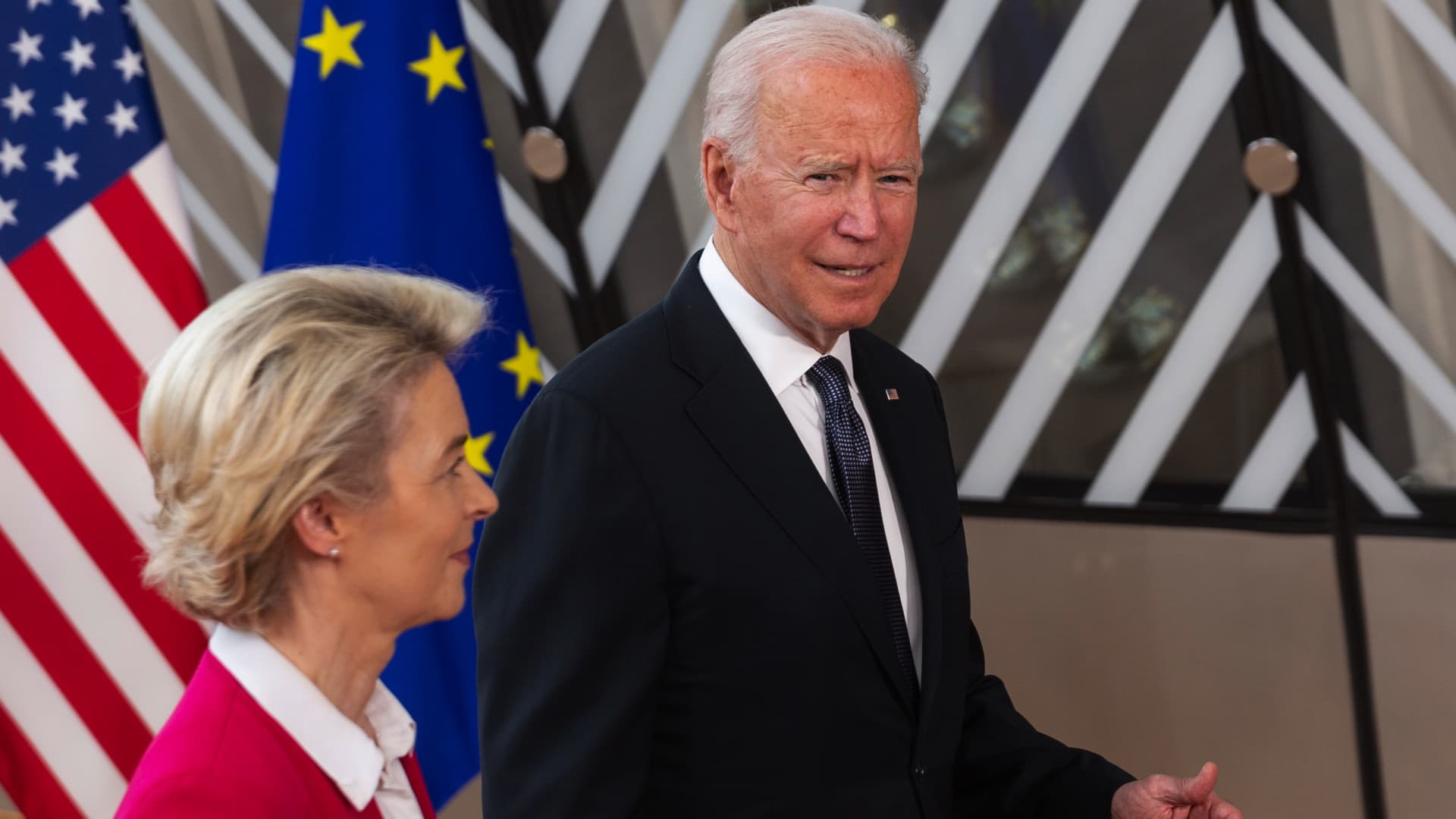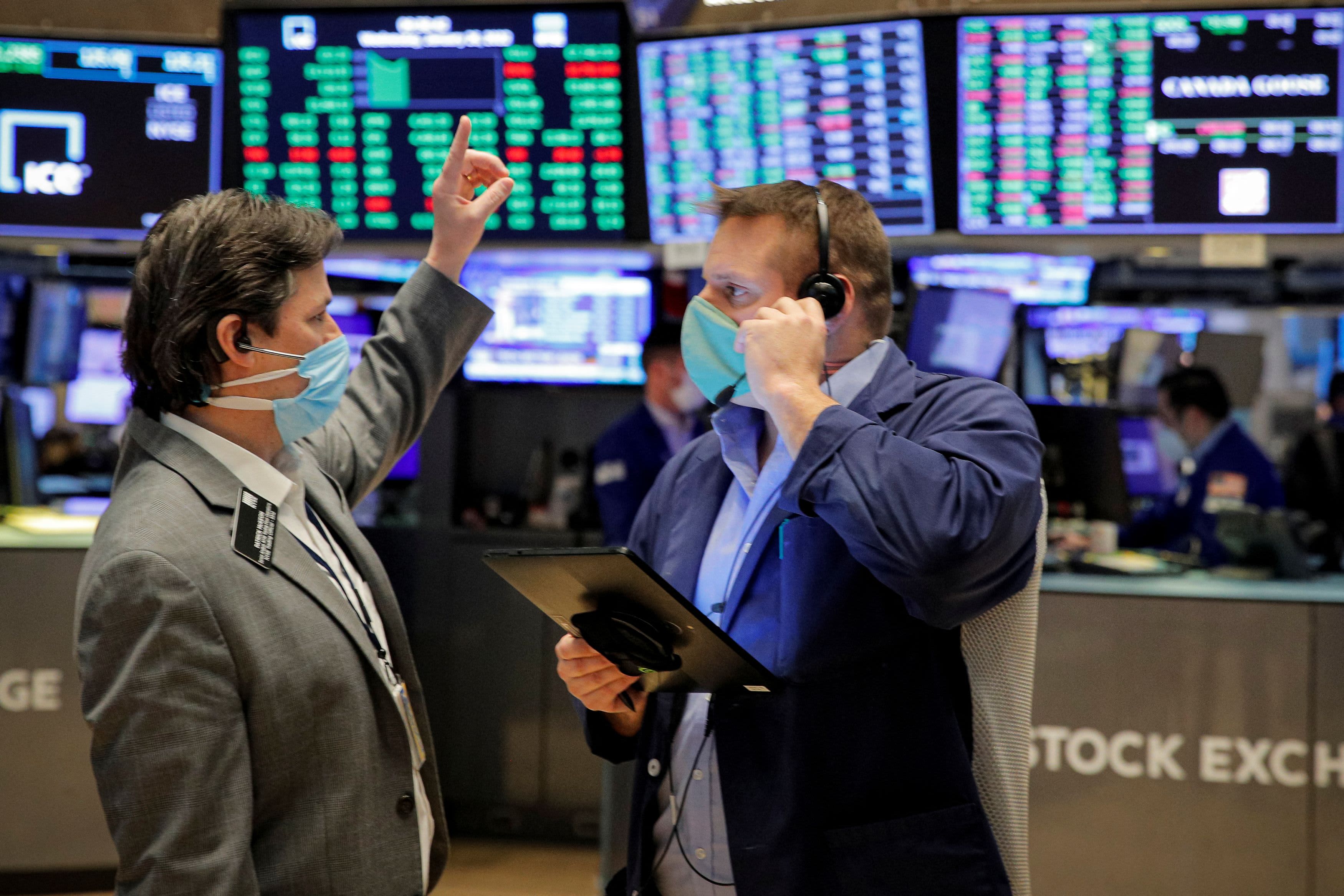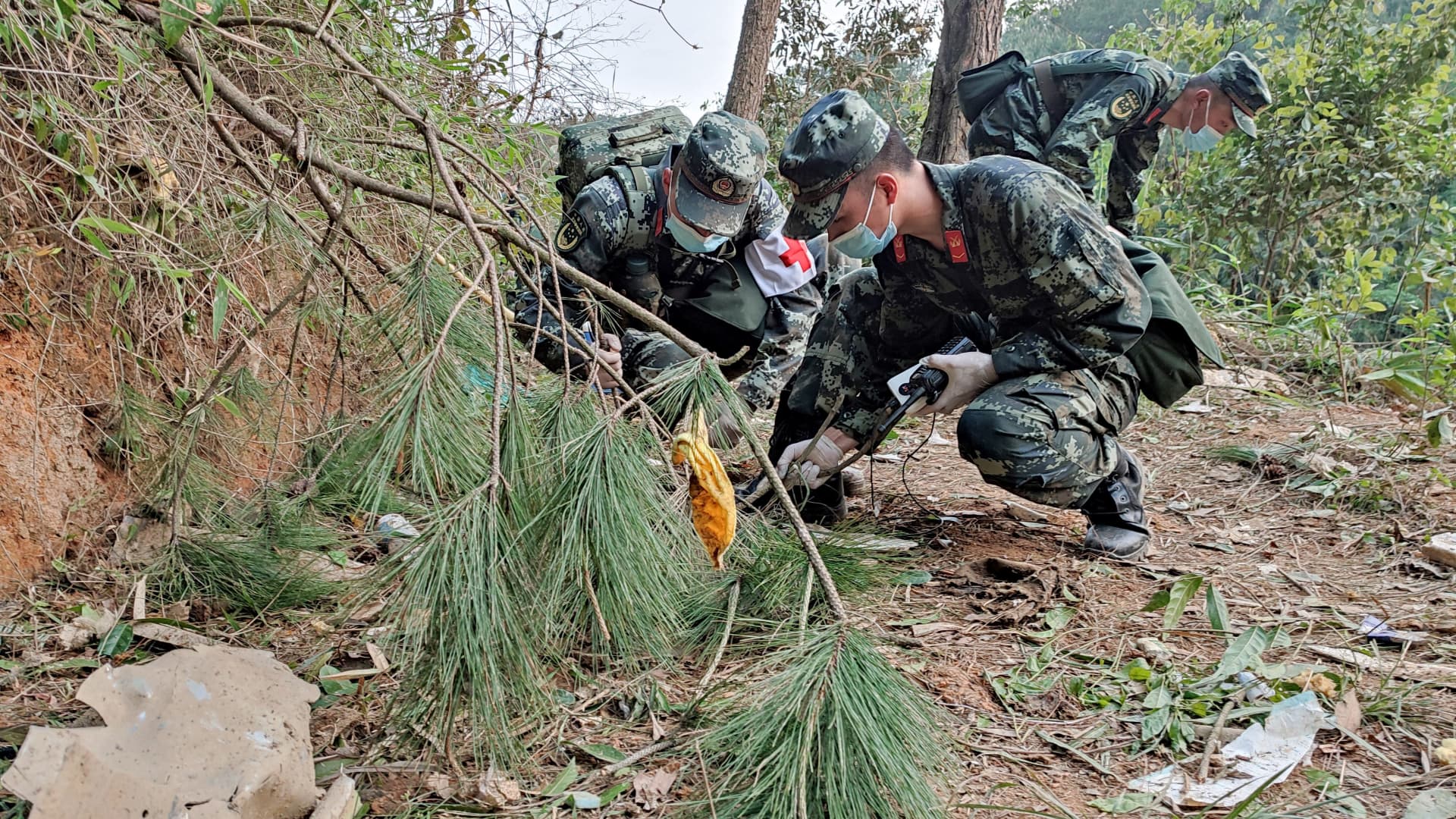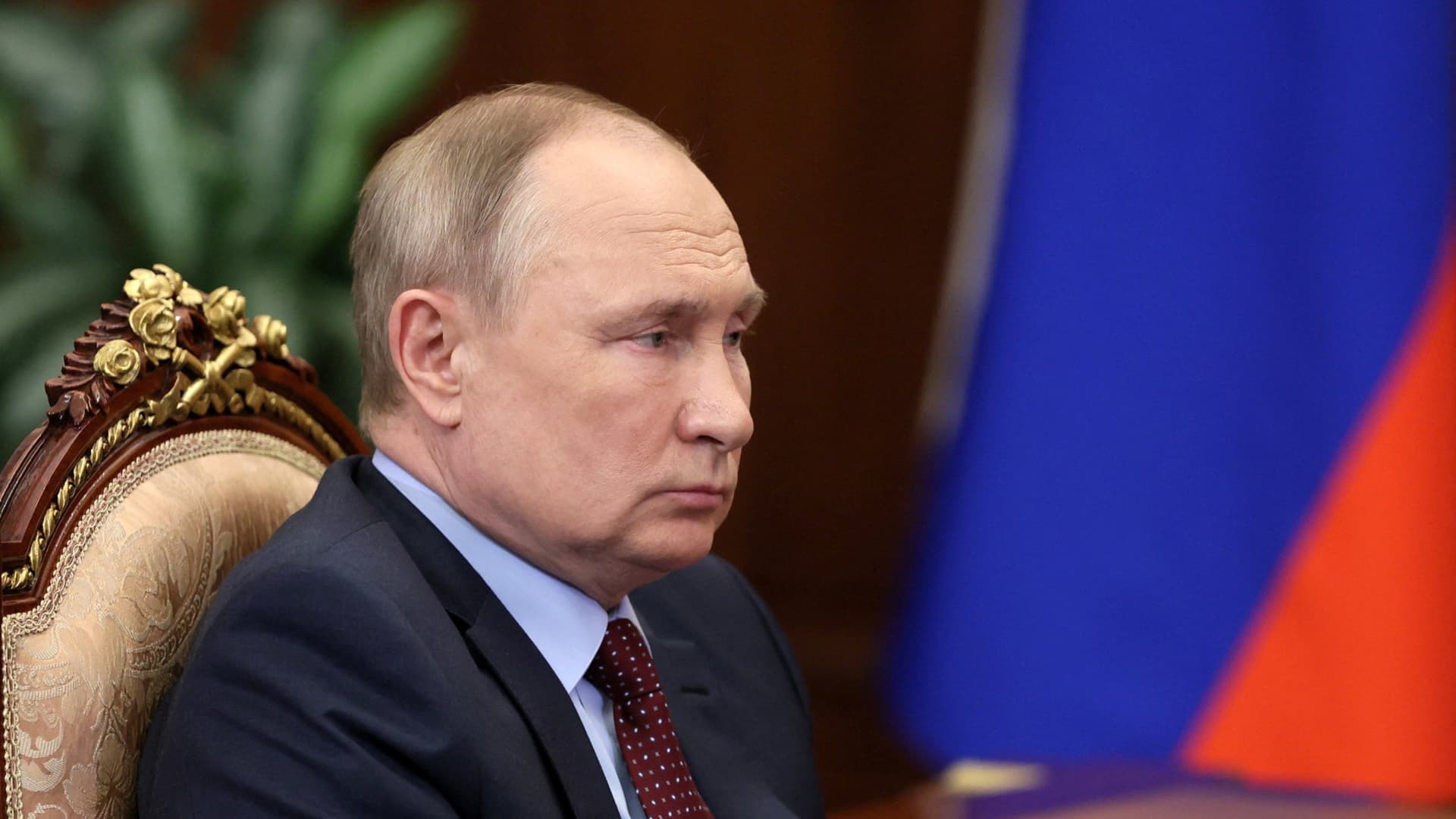Jan. 6 Capitol riot: FBI asks public to help ID more than 350 violent members of Trump mob still at large
More than 14 months after the Jan. 6 Capitol riot by a horde of supporters of Donald Trump, the FBI is still looking for hundreds of violent participants.
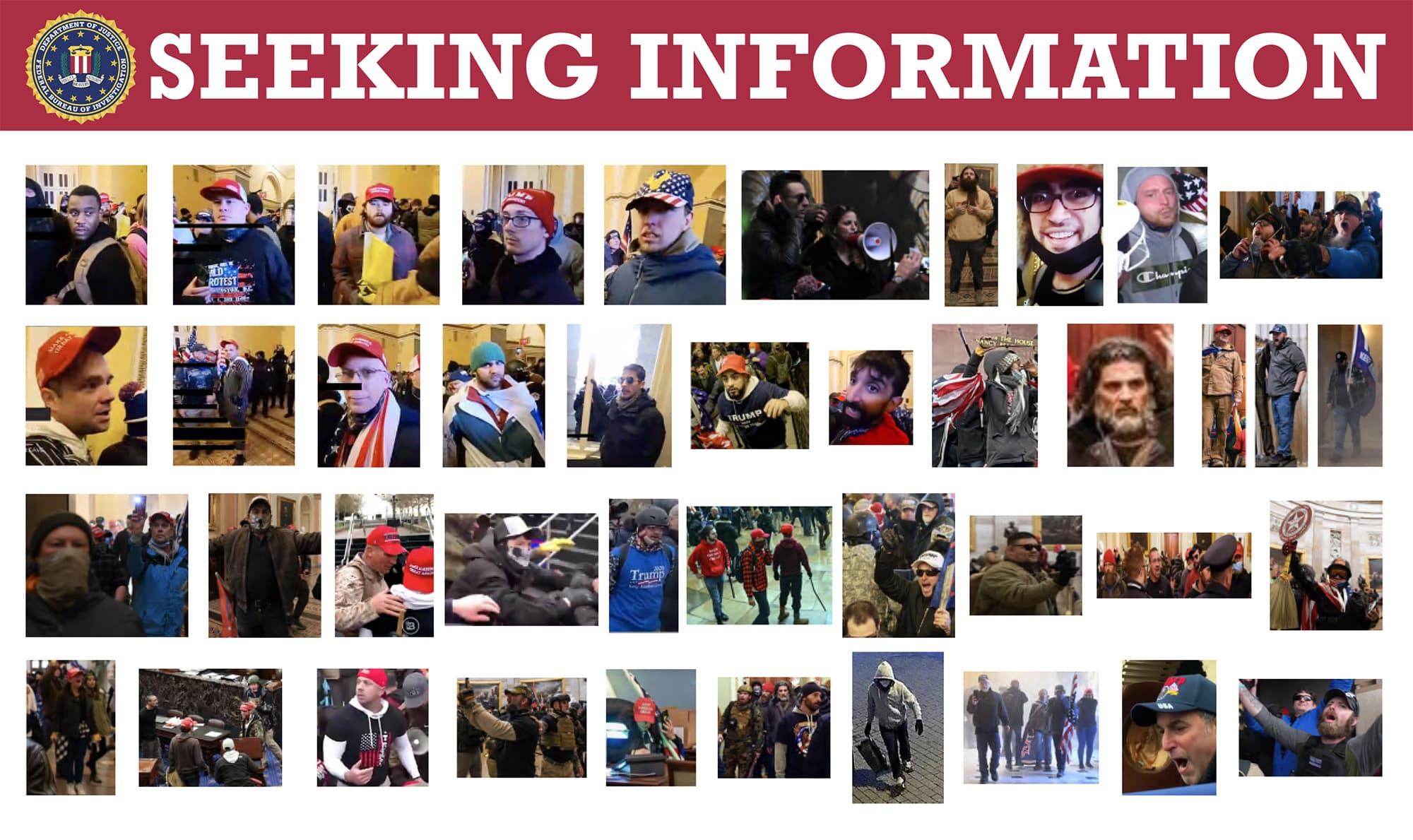
The FBI is seeking to identify individuals involved in the violent activities that occurred at the U.S. Capitol and surrounding areas on January 6, 2021. View photos and related information here. If you have any information to provide, visit tips.fbi.gov or call 1-800-CALL-FBI.
Source: FBI
The FBI is seeking the public's help in identifying more than 350 people still at large who are believed to have committed violent acts as part of a mob of Trump supporters that invaded the U.S. Capitol on Jan. 6, 2021.
That group of "wanted" suspects include more than 250 people "who assaulted police officers," the U.S. Attorney's Office in Washington, D.C., said in a new web post about its prosecutions of Jan. 6 defendants on the heels of the 14-month anniversary of the attack.
About 140 cops from the Capitol Police and Washington police agencies were assaulted during the riot.
Thursday's post by prosecutors includes a link to 16 videos of Capitol riot suspects, a video of two people wanted for assaults on media workers that day, and still images of mob members.
The post comes two days after a federal jury in Washington convicted Texas resident Guy Reffitt, the first person to stand trial on Capitol riot-related charges, of civil disorder, obstruction of an official proceeding, a firearm charge and obstruction of justice.
So far, prosecutors noted Thursday, more than 775 people have been arrested in nearly all 50 states on charges related to the riot. The vast majority of them have been charged with entering or remaining on restricted federal grounds.
But more than 245 of the defendants were also charged with assaulting, resisting or impeding police officers or police agency employees, including more than 80 who are charged with using a deadly or dangerous weapon or causing serious bodily injury to a law enforcement officer.
About 40 defendants have been charged with conspiracy, which could be conspiracy to obstruct a congressional proceeding, conspiracy to obstruct law enforcement during a civil disorder, conspiracy to injure an officer or a combination of the three.
Earlier this week, Enrique Tarrio, the former chair of the far-right group the Proud Boys, was arrested on conspiracy charges related to allegations that he and other top Proud Boys plotted to attack the Capitol on Jan. 6.
Pro-Trump protesters storm the U.S. Capitol to contest the certification of the 2020 U.S. presidential election results by the U.S. Congress, at the U.S. Capitol Building in Washington, D.C., U.S. January 6, 2021.
Ahmed Gaber | Reuters
In January, Stewart Rhodes, the leader of the far-right group the Oath Keepers, was charged with seditious conspiracy in connection with the riot, along with 10 other members and associates of that organization.
About 224 defendants so far have pleaded guilty to charges related to the riot, and more than 110 of them have been sentenced for their crimes.
The riot began as a joint session of Congress was meeting, presided over by then-Vice President Mike Pence, to confirm the Electoral College victory of President Joe Biden in the 2020 presidential election.
Before a mob gathered outside the Capitol complex breached its walls, then-President Donald Trump and a number of his allies at a rally outside the White House had repeated their false, weeks-old claims of widespread ballot fraud in the popular electoral vote.
Trump urged the rally's crowd to march to the Capitol to fight and pressure lawmakers to reject Biden's win, which would have tossed the election into the House of Representatives, where Trump might have won since Republicans held a majority among state delegations.
Attorney John Eastman gestures as he speaks next to U.S. President Donald Trump's personal attorney Rudy Giuliani, as Trump supporters gather ahead of the president’s speech to contest the certification by the U.S. Congress of the results of the 2020 U.S. presidential election on the Ellipse in Washington, January 6, 2021.
Jim Bourg | Reuters
Lawmakers fled both chambers of Congress during the attack. They hid for hours before the complex was cleared and they could certify Biden as the next president.
Five people died as an immediate result of the riot, including one woman who was fatally shot as she tried to breach an area adjacent to the House floor, and a Capitol Police Officer Brian Sicknick, who died the next day after collapsing during the attack after being sprayed with a chemical by rioters.
At least four other cops who had responded to the riot died by suicide in the days and months after the attack.
On Wednesday, the suicide of Washington police officer Jeffrey Smith, who had been assaulted at the Capitol that day, was ruled a line-of-duty death by an official board, which made his widow eligible for enhanced survivor benefits.

 KickT
KickT 







